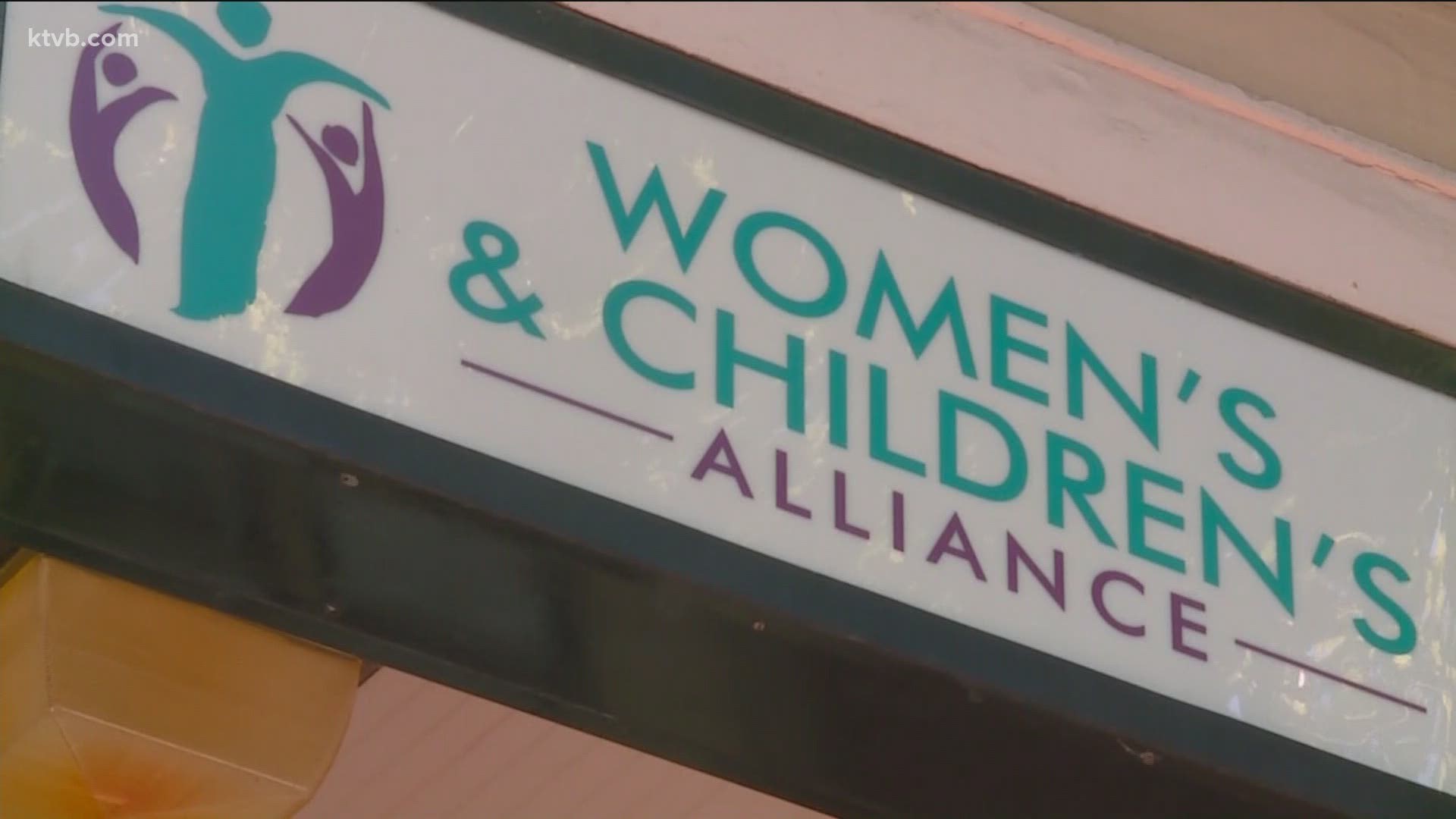BOISE, Idaho — Unemployment, financial loss and a change in education are just a few of the side effects of the COVID-19 pandemic.
But there's another area taking an even greater toll on some families: domestic abuse.
The Women's and Children's Alliance in Boise has seen an increase in abuse cases since March when the pandemic hit the Gem State.
As a result, CEO Beatrice Black said, there's been a significant increase in the need for WCA services in three different areas.
The first is in the number of calls to the WCA's 24-hour hotline.
"We saw an increase, first quarter 2019 to first quarter 2020, of 93%," Black said. "Just the month of April 2019 to 2020, was an increase of 194%. In terms of just the number of calls, it went from about 100 calls in the month of April 2019 to over 300 [calls] in April 2020."
That number has stayed at around 275 calls for the month of May and again in June.
Black said the WCA is also helping many more victims file civil protection orders.
The third area where the alliance has seen a significant jump is in the number of emergency intakes to its shelters.
“An emergency intake happens when the threat of lethality is so high or is high to that individual and their children that they bypass any waitlist and are moved immediately in,” Black said.
"To put the numbers into perspective, last year during 2019, we had an average of one emergency intake per quarter," Black added. "This year, in just the past 12 weeks, we have had 9 emergency intakes."
So what are the reasons behind the increase in domestic abuse?
“If you think about what’s at the heart of an abusive relationship, it’s one individual’s desire to control another," Black said. "So if you think about the stay at home order, if you think about what I call physical distancing, there are not a lot of opportunities for individuals who might be in an abusive relationship to interact with others or for others to see what is going on."
According to Black, the isolation of being at home all the time also contributes to the increase.
"If you think about being told to stay indoors and one or both partners are now not working, you're not only having to – in a sense – be locked up with the person that's your abuser, you have no time without that person," she said.
The best thing people can do to help is to check in with family and friends and see how they're doing.
If someone you know does need help, you are encouraged to offer them help or additional resources to get help. There is no need to draw more attention to the situation and make the person uncomfortable - just be a friend and offer options for them.
"Just the fact that you're a listening ear and you're available," Black said. "That can be helpful to people."
Black also told KTVB that in recent months, the number of reported child abuse cases have dropped mostly because kids are out of school so many cases are going unnoticed and unreported.
The Women's and Children's Alliance 24-hour hotline is always an available resource and calls can be anonymous. That number is 208-343-7025.
Numbers for both the state and national domestic abuse hotline are also available:
- Idaho 24-hour Domestic Violence Hotline: 800-669-3176
- National 24-hour Domestic Violence Hotline: 800-799-7233
Watch more 'Hello Idaho':
Watch our latest conversations about mental health in our YouTube playlist:

